Winter’s well and truly here, so while the evenings are dark, cold and windy, why not turn off the TV and start the year with a great new book? Here’s what the ECI team are reading this January:
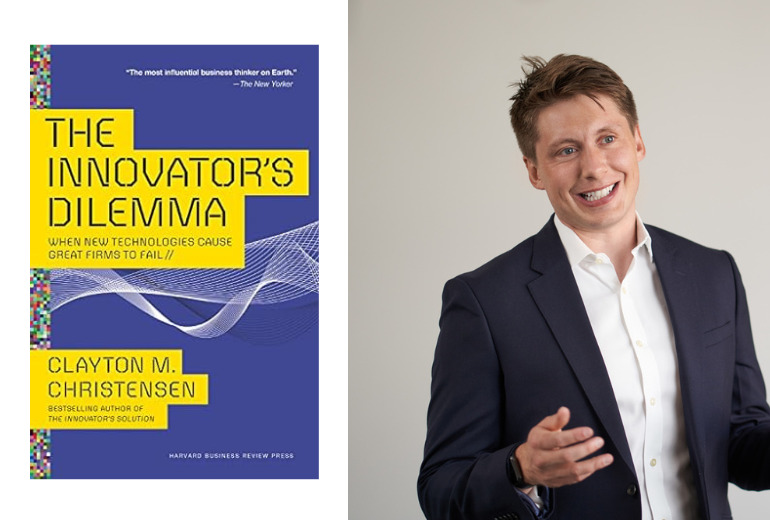
Daniel Bailey
The Innovator’s Dilemma by Clayton M. Christensen
This book which has been around for a while, was recommended by a friend who works in a large tech company. I believe it remains a very compelling case as to why market disruption happens. Essentially it explains why very good established companies can lose market share to disruptive tech innovators and what those established companies can do to prevent this from happening. Without giving too much away, mature companies can become psychologically trapped by their customers ‘wants and needs’ and financially hooked on the high-margin nature of their high-value products. Subsequently, it leaves them vulnerable to competitors entering an established market from a lower-priced adjacency and rapidly stealing market share. If you have an interest in tech or business, then it’s a really interesting book to read. Disruption is happening all the time and at the moment it is accelerating with the development of LLMs and other AI tools.
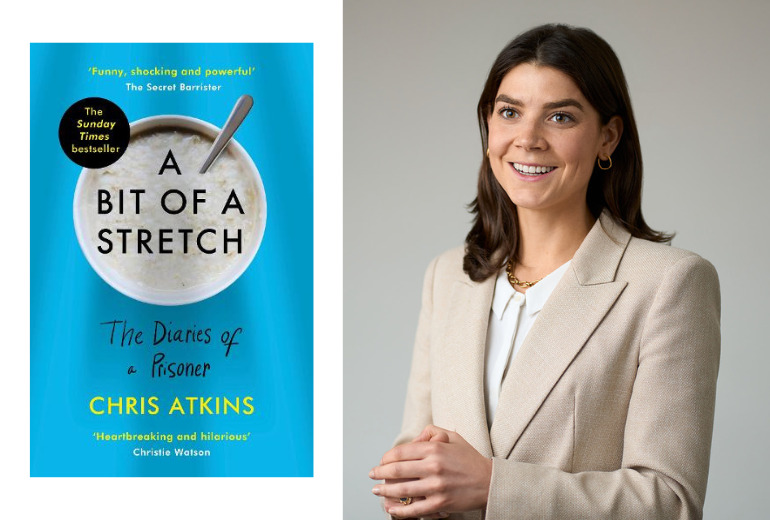
Isabella Fox
A Bit of a Stretch by Chris Atkins
A Bit of a Stretch provides a fascinating insight into the prison system in the UK. It describes Bafta-nominated and Oxbridge-educated filmmaker, Chris Atkins’ 9 months inside one of its toughest prisons, HMP Wandsworth – ‘the worst UK prison in history’ – after his conviction for tax fraud. Written in the form of diary entries, the book is witty, surreal and shocking, highlighting how he works the system, ending up with the best cells and jobs afforded by his educated (50% of prisoners are illiterate), white and affluent privilege. Overall it provides an eye-opening account of what the UK prison system is like and why it really matters.
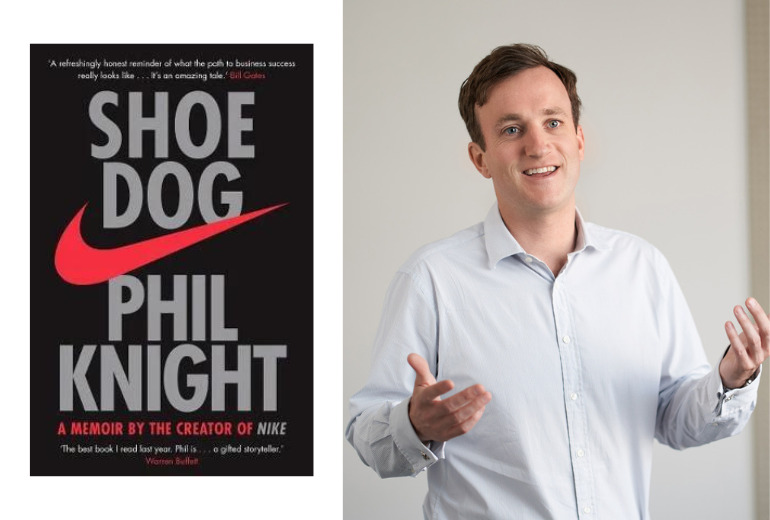
Toby Fitzherbert
Shoe Dog by Phil Knight
Shoe Dog is an autobiographical account by Phil Knight, co-founder of Nike, detailing the company’s journey from its humble beginnings to becoming one of the world’s most recognisable and successful sportswear brands. The book covers the challenges, triumphs, and pivotal moments in Nike’s history, from the initial idea of importing Japanese running shoes to the eventual development of their own footwear line. It also explores Knight’s personal and professional growth as he navigates the complexities of entrepreneurship, partnerships, and global expansion.
I appreciated the candid and engaging storytelling style of Phil Knight, as well as finding his account of Nike’s evolution and his personal experiences in building the brand highly inspirational. The book provides valuable lessons about entrepreneurship, including the importance of perseverance, innovation, and the value of strong partnerships. It also sheds light on the ups and downs of business and underscores the significance of believing in one’s vision, even in the face of adversity.
.
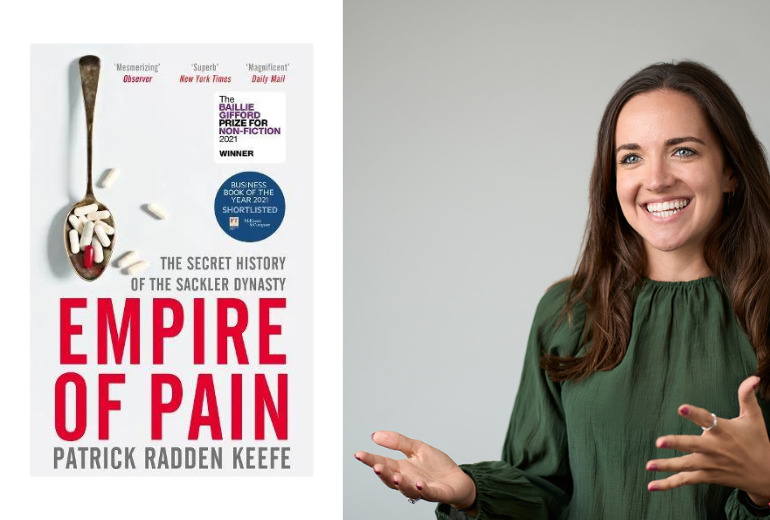
Chloe James
Empire of Pain by Patrick Radden Keefe
Empire of Pain is a fascinating deep dive into the Sackler dynasty, a wealthy family once revered for their philanthropy and generosity with the arts, and exposing them as the architects of the devastating opioid crisis that still grips the USA today. Whilst the book focuses on the corporate corruption, it weaves in the human cost of the tragedy. After initially being daunted by the size of the book (it’s an impressive 590 pages), it kept me hooked throughout, and thinking about it long after. I would highly recommend it to those with a long commute!
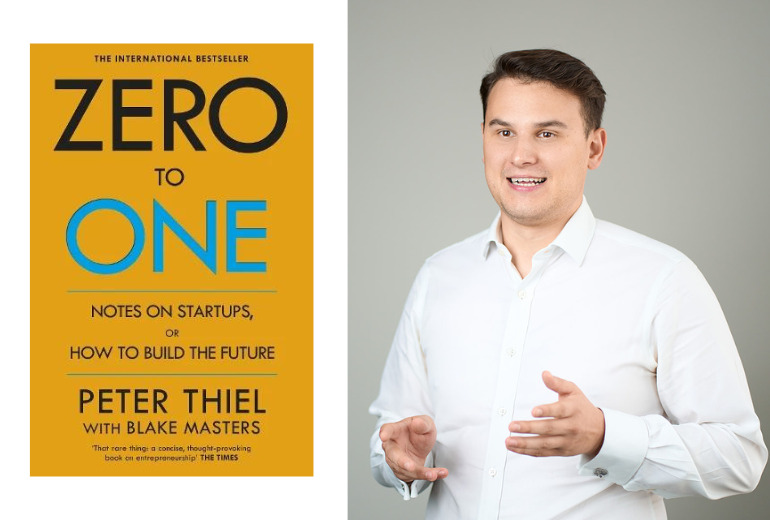
Hamish Paget-Brown
Zero to One by Peter Thiel
Peter Thiel, co-founder of PayPal and first investor in Facebook, delivers thought-provoking insight into why entrepreneurs should be aiming to build businesses with products that have never existed before (taking the innovative step of going from nothing, zero, to one), rather than incrementally improving on existing products and services (going from 1 to 2 to 3).
His argument centres around his controversial yet fervent belief that monopolies are good for society, delivering an offering far better than any competitor and fostering innovation that takes society forward in leaps rather than increments. I found this quite a simplistic view, largely leaving out discussions on the negative effects on businesses and consumers created by anti-competitive monopolistic positions. However, the book’s goal is less to challenge the core principles of the CMA, and more to inspire entrepreneurs to innovate and create their own markets, rather than enter already crowded markets where it is an anti-social race to the bottom that stifles innovation. This it does quite well.
Whilst Zero to One doesn’t serve as an entrepreneur 101 handbook, it touches on a number of important factors needed to build successful businesses such as leadership, culture and effective sales strategies, and that may just spark some ideas for anyone thinking of founding their own company – or should I say monopoly?

